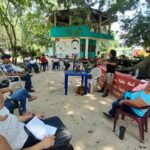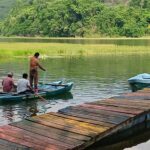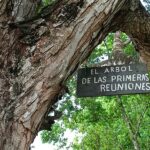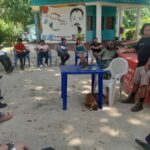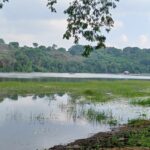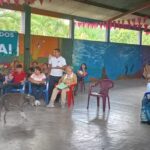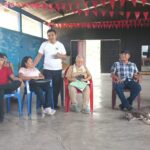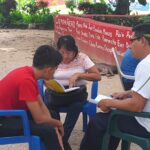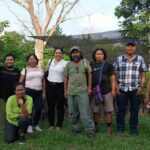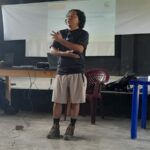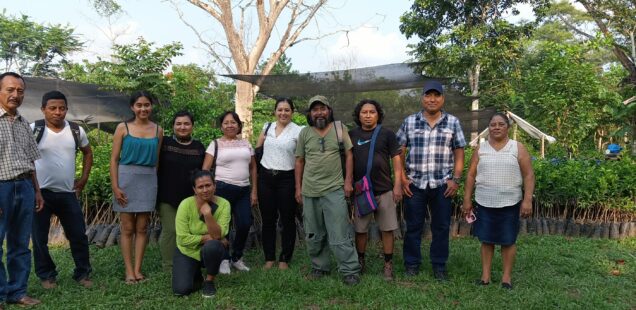
Strengthening four communities in the Petén region of northern Guatemala, and facilitating their mutual solidarity in governing their territories of life
The Asociación Solidaria de Acción y Propuesta de Petén (ASAPP) is a civil association formed in 2006 by members of different municipalities in the department of Petén with the aim of confronting the expansion of oil palm agribusiness, drug trafficking and the financial and health crises that enhance local poverty and the migration of young people. To confront these threats, ASAPP considers it important to strengthen the local communities, the governance of their territories of life, and their capacities for sustainable livelihoods. For years, with minimal resources and a strong spirit of solidarity, the organisation has been active in agroecology, community agroforestry systems, community beekeeping, medicinal gardens, reforestation and protection of water bodies, conservation of sacred sites, and solidarity economy, including small markets for the exchange of local economic products and community tourism. ASAPP is also active in involving young people in cultural and educational activities, including the strengthening of Mayan spirituality.
The ASAPP initiative supported by the Paul K. Feyerabend Foundation will involve four communities in the department of Petén in the municipalities of Sayaxché, Santa Ana, San José and Flores. The first is the cooperative Manos Unidas, a peasant cooperative formed in the 1970s by founding members of the Mam and Kiche people from the highlands to legally acquire arable land for agricultural production and marketing. The land they collectively came to own includes about 1,800 hectares of natural forest where the cooperative develops beekeeping projects and agroforestry systems. The cooperative also protects the San Juan Acul lagoon from foreign fishing and illegal logging, and actively resists oil palm agribusiness and drug trafficking. The second, rather small, community is San Jose Petén, founded by the Itzá people before Spanish colonisation. Forcibly subjugated, the community has been losing its native language and other important aspects of its Mayan culture, but some young people continue to try to rescue their important linguistic heritage and terrestrial and aquatic biodiversity.
The third community is the Nuevo Horizonte Cooperative, which was born in 1998, after the signing of the Peace Accords in Guatemala. 130 families who had fought in the Rebel Armed Forces were settled on a farm in Santa Ana that did not offer even the minimum conditions of housing, drinking water, electricity, or soil productivity. Without capital or assets of their own, these families ‘used to fighting’ organised themselves to develop, with some international assistance, a model of solidarity cooperation and a diverse range of projects (e.g., reforestation, forest conservation, lagoon conservation, agroforestry systems, fish farming, backyard hens, community tourism, etc.). The fourth community is El Remate, a very old trading village at the eastern end of Lake Peten Itza, which was strong and united for centuries until various government initiatives caused major changes in the population. El Remate thus lost its community spirit and its respect and love for the forest and nature, turning them into mere commodities. ASAPP believes that this love and respect for nature could still be strengthened by the exercise of governance over their territory of life, following the example of other communities in Guatemala and in the world.
Building on its long-standing involvement with the four communities, the ASAPP has proposed to establish a network of territories of life in the Petén and to create links with other networks at national and international level. Its initiative aims to strengthen the community governance and protection of the forests of the four communities, through a process of collective reflection and enhanced self-awareness of the close relationship between the communities and their territories. In collaboration with some members of the ICCA Consortium in Guatemala and Mesoamerica, ASAPP will also use the tools for strengthening territories of life that exist at the global level (e.g. https://ssprocess.iccaconsortium.org/es/self-strengthening-your-territory-of-life-espanol/).
The ASAPP will organise workshops and meetings with the four communities so that information may be exchanged and discussed about territories of life and their possible institutions of local governance, on the different impacts of different socio-economic and cultural systems, and on alternatives of ‘good living’ that could be developed in their territories. The communities may then recognise themselves – or not – as custodians of the territories of life in Petén. If they do so, they will be supported to create their local teams of youth (women and men) and community leaders (women and men) who will facilitate the process of self-strengthening and mutual solidarity in each community. The teams will facilitate the documentation of their territories and develop or strengthen their own territorial governance model along with their own management rules and implementation criteria and practices. These steps of internal reflection in each community are expected to strengthen self-awareness and internal solidarity. Exchanges between custodian communities will also be actively promoted in order for each one to learn from the others and offer mutual support.
In parallel, ASAPP will keep supporting sustainable productive models at family and community level for both self-consumption (food sovereignty) and commercialisation compatible with the conservation of biodiversity. It will also continue to strengthen the Itzá people’s efforts to maintain their spirituality and language, in relation and link with their sacred sites. As in any democratic process, the communities will hold general assemblies to make decisions and to elect their representatives and evaluation meetings to identify achievements, weaknesses, and strengths.
The ASAPP hopes that, as a consequence of the process of self-recognition of communities as custodians of territories of life, a solidarity alliance will be generated between them and – perhaps – with other communities in Petén that could recognise themselves as custodians and integrate the process. What is considered important and is foreseen as of now is the articulation of the network of territories of life in Petén with the national and international networks of the ICCA Consortium. Overall, the process should strengthen the custodian communities in Petén and help their visibility and mutually supportive relations with other custodian communities in Guatemala and beyond. In fact, the process has already begun. In August 2023, a gathering of members from the four communities has taken place in the occasion of the visit of Albert Chan Dzul, a Maya activist from Yucatan (Mexico).

